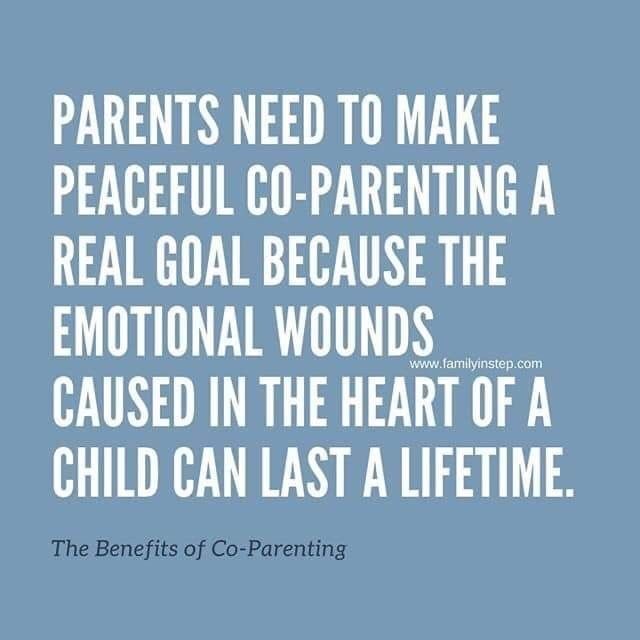
Because of the rate at which children are born outside of marriage and couples sometimes decide against pursuing a long-term relationship with each other but want to remain in their child’s life, the best alternative is co-parenting. I’ll put in a disclaimer here before I trip over my own tongue though: I have little to no experience co-parenting and I’m therefore not speaking from an experiential standpoint. However, I still choose to write about this because I have watched other parents around me co-parent and I’ve learnt a ton of things from them. Secondly, given the rate at which this has become part of society now, it’s important to begin or add to the conversation on this issue. And so with that, I’d like to point out some (not all) the ways in which it is possible to develop and manage a healthy co-parenting relationship.
Strategy #1: Prioritize your child
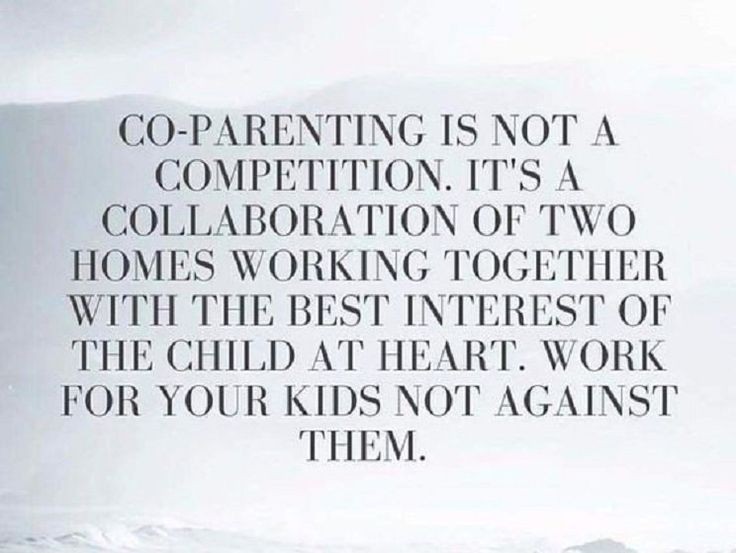
The truth is that some relationships end in the nastiest of ways and the issues which come up in the course of that breakup may set the tone for the rest of your parenting relationship. It may be that anger, resentment and and bitterness may be the emotions that build up whenever you just as much as hear their name. In such situations, it becomes extremely difficult to even think of next week’s plan to have your baby daddy come over for the scheduled visitation with his daughter.
However, as horrible as it may be to accept, the truth is that your child needs their father. Particularly in cases where you may have been living together or the father was present in the child’s life consistently, your breakup does not mean the end of the need of both parents for your child. In cases where abuse is involved, then it would be prudent to seek alternatives excluding the father for your sake of your safety and that of your child. However, in the majority of the cases where people breakup over personal differences, then the parents have to be mature enough to acknowledge that the need of the child is that both parents are still present which would require that the parents put aside their issues for the sake of their child. It’s obviously much easier said than done but in principle, this is the most mature step to take.
Strategy #2: Avoid parental alienation
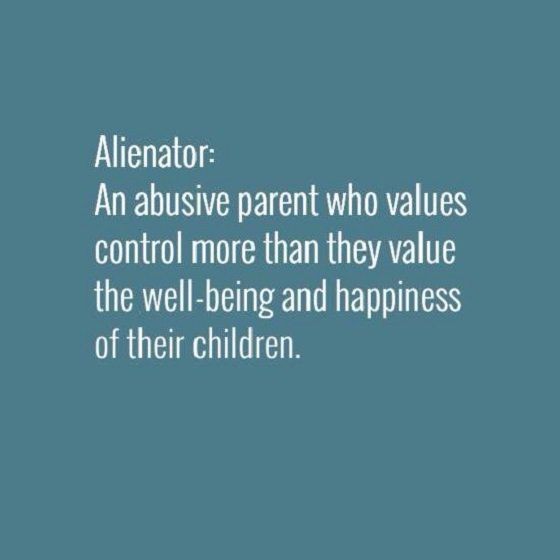
In the book ‘Parental Alienation Can Be Emotional Child Abuse’, Ken Lewis describes the phenomenon of parental alienation as “a strategy whereby one parent intentionally displays to the child unjustified negativity aimed at the other parent. The purpose of this strategy is to damage the child’s relationship with the other parent and to turn the child’s emotions against that other parent.” It’s basically using your child as a weapon against your baby daddy. Instances that this may happen may be that you may not have wanted the relationship to end, he may not have stepped up as the father when he needed to, or he may have moved on and found someone else. All these situations are logical grounds for the need to hit him where it probably hurts the most – his child. But common sense will tell you that you can’t put out a fire with gasoline.
Our shortcomings as human beings often make us do horrible stuff. Some of it, we aren’t proud of in the least and it can be a source of great embarrassment, shame and regret. Therefore, it’s important to always seek to do the best you can at whatever point in life. And one of those ways is resisting the urge to involve children in adult conflict; that’s just immoral and immature because young minds don’t process complicated life issues like adult brains do. A fleeting wave of anger leading to trash-talking your baby daddy may cause a lifetime of destroyed chances at a healthy relationship between your child and his/father. You may have a million horrible things to say but if there’s nothing positive you can and want to say, just stay quiet.
Strategy #3: Stop the drama
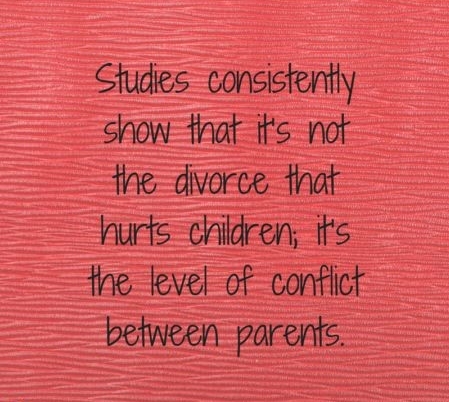
Apart from parental alienation, there is also the issue of drama which plagues many relationships where kids are involved. The drama may manifest in ways such as repeated violation of boundaries such physical, verbal and emotional abuse, persistent fear due to constant threats, and creation of an unstable environment for the child to grow up in. In some cases, people justify the drama saying that the baby daddy has to pay child support, the baby mama shouldn’t date because it would mean another man filling the dad role in the child’s life and other reasons which seem logical on the surface but show up in very bad and unflattering ways. These reasons may then be the foundation on which chaos and toxicity repeatedly erupt.
This then often creates a cycle of negativity especially when the drama is all you know from as early on as your childhood and because of the conscious or unconscious search for familiarity, children from drama-filled homes may end up as adults in drama-filled relationships unless intentional efforts go into breaking the cycle. Children then end up learning toxicity as the normal way of life and perpetuating it to the next generation. Our responsibility to future generations demands that drama is cut from the roots if we have any chance at a stable future in society.
Strategy #4: Resolve unresolved feelings
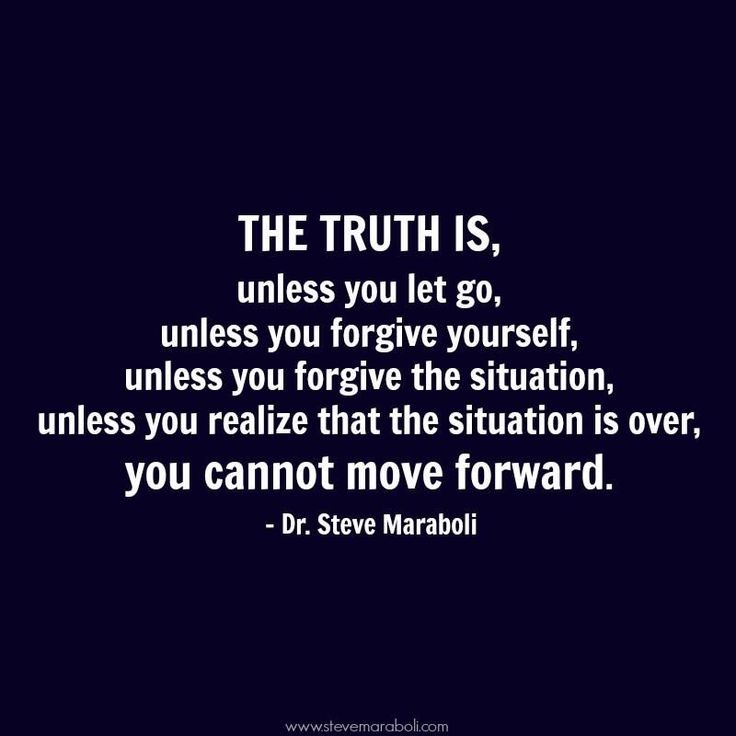
I honestly believe that this has to be one of the areas that carries the most baggage in broken relationships where children are involved. You may find that a couple has dated for several months or years and over time, feelings were involved, even where people talk about ‘no strings attached’ relationships (and we all have enough sense to know that these particular kinds of relationships don’t work). How much more then where the relationship may have been a committed one? If you are the one with these unresolved feelings, then you may be very upset and resentful about your partner moving on and finding someone else and this resentment may manifest in harmful ways such as wanting to hurt your baby daddy by withholding the child from him or being verbally or emotionally abusive. If the tables are turned and you want to move on but your baby daddy is still not letting go of the relationship, then he may be the one doing everything in his power to sabotage your chances at any other relationship which leads to drama that’s as unpleasant as it is unnecessary. Whichever way these unresolved feelings are manifested and who manifests them, it’s the child who hurts the most because of the toxic relationship that this situation inevitably leads to.
Unresolved feelings have the capacity to fuel the worst behaviors and outcomes for both adults and children. Even if each partner ends up in their own relationship, there will always be something holding them back from moving on. Therefore, similar to how we get out of debt by simply paying it off, the only way to deal with unresolved emotions is to resolve them. See a counsellor, talk to a friend, get a hobby, or even get another job if you have to. But ensure that intentional steps are being made to be conscious of the presence of unresolved feelings and learning how to resolve them if you desire any chance at eventually getting back to dating or marriage.
Strategy #5: Pursue maturity always

I can’t overstate the need for children to grow up in a healthy and loving environment. It’s not just expected but it’s also pretty much common sense. And the people who primarily create this environment are the parents of the child. This is a huge responsibility that can only be undertaken with generous amounts of God’s grace and a lot of personal and relational maturity. I believe this is what sums up this entire article. The ability to prioritize your child, avoid parental alienation, stop the drama and resolve unresolved feelings are all products of the attempt to exercise the highest possible form of maturity. This isn’t to ignore underlying factors such as pain, distrust, resentment, betrayal and shame. It’s to attempt to deal with these issues and move past them for the sake of the future of your child.
Maturity isn’t about the big happy family with a perfectly functional co-parenting relationship. That’s definitely the goal but it isn’t what maturity is. Maturity is about making small but intentional steps towards the best possible future for the parents and child. It may be that you decide to allow your child to do Saturday lunches with her dad, it may be that you create and adhere to agreed-upon boundaries to allow unresolved feelings to go away, it may even be that you decide not to break his windscreen even if the car is parked right in front of your house. Whatever maturity may be, pursue it, and do so wholeheartedly.
Serving Iraq with pride, BWER supplies high-performance weighbridges designed to improve transport logistics, reduce inaccuracies, and optimize industrial processes across all sectors.
https://cr-v.su/forums/index.php?autocom=gallery&req=si&img=3950
Very good https://is.gd/tpjNyL